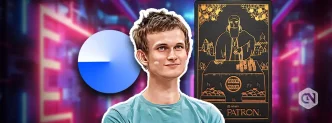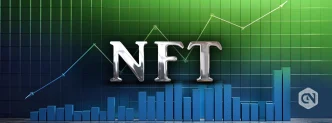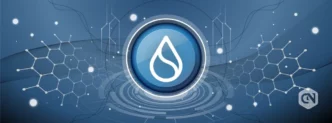This content has been archived. It may no longer be relevant.
The Non-fungible tokens (NFT) market has taken the crypto ecosystem by storm; it is currently one of the hottest areas of innovation. Last year, NFT sales skyrocketed to hit $25 billion, marking the largest growth since the debut of Crypto Kitties back in 2017. While things have slowed down due to macro factors, NFTs have shown a strong resilience compared to other crypto assets.
Will this burgeoning ecosystem shape the future of the Web 3.0 economy? For those unfamiliar with Web 3.0, it is the latest iteration of the internet (built on blockchain technology and Virtual Reality). NFTs are among the pioneer Web 3.0 innovations; though a nascent space, this emerging crypto asset class has opened up an opportunity for people to interact with decentralized marketplaces and exist in virtual worlds.
Today, it is possible for anyone to mint an NFT that represents a piece of digital art or collectible and exchange it for fiat or another crypto asset. For instance, Beeple’s ‘Everydays: The First 5000 Days’ digital collection sold for $69 million at a Christie’s auction – it is one of the largest NFTs sales to date. We also have popular digital collections, such as the Bored Ape Yacht Club (BAYC), whose floor price is currently at 94 ETH ($196,460 as per the prevailing prices).
The Current NFT Market Is Unsustainable
Despite being touted as the future of virtual interactions, the current structure of the NFT market is highlighted as fragmented. Some crypto innovators have taken advantage of the naivety in the industry to launch ‘scam’ projects that have little to no utility. There are over 80,000 NFT collections on the Ethereum blockchain alone; however, only a handful of these projects have a fundamental value proposition.
Advertisement
NFT innovators have been on an experimental spree at the cost of loyal community members and investors. Just recently, one of the leading NFT projects, Azuki, took a massive hit after the founder disclosed that he had previously been involved with three failed projects (CryptoPhunks, Tendies, and CryptoZunk). While the whole point of NFTs is to introduce permissionless markets, it is evident that some stakeholders are building on mere speculation.
In a perfect market scenario, the motivation should be launching sustainable projects that add value to the existing market structures. What does this mean? NFT market participants have to shift from the speculation culture to a more solution-oriented ecosystem.
Luckily, the crypto market plunged by over 50% in recent months and has triggered a separation of wheat from the chaff.
NFT Innovations that Will Thrive In the Future
The community gradually realizes that only projects with a futuristic utility deserve a seat at the table. It does not make sense for anyone to mint an NFT collection or digital collectibles that have no fundamental value and sell them because the price will go up. To this end, some upcoming NFT projects have the backing of successful industries, while others have ventured to solve some of the long-standing challenges, such as crypto inheritance.
For example, the Digital Arms NFT marketplace is one of the innovations that has gone a notch higher to enable the purchase of IP-patented digital collectibles. Unlike its counterparts (OpenSea and Rarity), this NFT marketplace has partnered with several leading firearm brands to acquire exclusive IP rights to some of the latest digital firearms in the market. These digital firearms can be used across several gaming platforms or stored as collectibles.
On the inheritance front, we have projects like Serenity Shield introducing a seamless way for crypto holders to pass down generational wealth. This DApp provides users with a strongbox divided into three encrypted NFT fragments; the first NFT is held by the account user, the second by the heir, and the final NFT component is secured through Serenity Shields smart contract vault. To unlock the inheritance, one requires the NFT fragment held by the heir and the one stored by Serenity Shield.
Advertisement
Besides the examples mentioned above, there is a high likelihood that long-standing NFT projects such as BAYC and CryptoPunks will also make a strong comeback once the market breathes to life. After all, the two communities host some of the largest crypto investors and a wave of prominent celebrities from Hollywood, including rapper Snoop Dogg and NBA star Steph Curry; both are part of the BAYC community.
Final Thoughts
While the current market conditions are uncertain, the NFT sector will probably be one of the fastest gainers once the trend reverses. Investors who pay more attention to the paradigm shift towards fundamental innovations have a better chance of joining valuable projects and communities. The NFT market will no longer be a speculation-driven niche but a value-oriented ecosystem.







